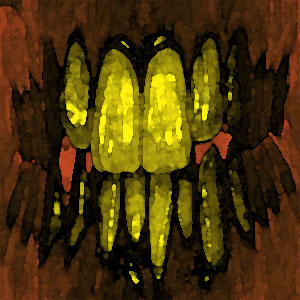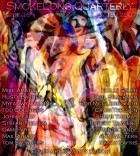When and how did you realize that Francesca’s story needed to be told in a single sentence? What effect does the one-sentence structure have on the reader? What challenges does it present for writer and reader?
The one-sentence structure came about pretty organically. It just was the story. I think it gives the narrative a sort of breathlessness, like walking up a flight of stairs. Also, another writer friend of mine, Kenneth Ryan, pointed out that each dependent clause was like a step, which I thought was pretty cool.
The story lands on “tomorrow.” There’s always tomorrow, isn’t there? What does “tomorrow” mean to you?
Beauty. Choices.
“The clash of grace.” Love that. This line feels central to the story. Yes?
” . .. this clash of grace.” Yes.
“…like the suffering of Our Lord, who had nothing but crosses and thieves waiting for him at the end..” How did Our Lord end up in your flash? -and what is He doing there?
I’m not sure. He pops up in the most unlikely places. Like when I’m picking up dog crap or parallel parking, for instance.
At the recent AWP conference, a number of writers talked about their old flames, books that have influenced them during a formative time in their lives-and ones they return to for lessons in writing and, of course, life. Discuss your old flame, both what it meant to you then and what it means to you now.
I don’t have a memory of not wanting to read, and as soon as I learned, I read every printed thing I could get my hands on. Which included the Wall Street Journal, and Business Week. Everything had an influence. I’ve loved Ray Bradbury, Richard Bach, Thomas Wolfe, Toni Morrisson, Virginia Woolf, J.D. Salinger, Edgar Allan Poe, Kurt Vonnegut, Russell Edson, the Beats, Gabriel Garcia Marquez, Carson McCullers, Italo Calvino, Albert Camus, Zora Neale Hurston, Lillian Hellman, Raymond Carver, Dostoevsky, and many others I can’t remember right now. I hope I haven’t hurt anyone’s feelings by leaving them off.



 The core workshop of SmokeLong Fitness is all in writing, so you can take part from anywhere at anytime. We are excited about creating a supportive, consistent and structured environment for flash writers to work on their craft in a community. We are thrilled and proud to say that our workshop participants have won, placed, or been listed in every major flash competition. Community works.
The core workshop of SmokeLong Fitness is all in writing, so you can take part from anywhere at anytime. We are excited about creating a supportive, consistent and structured environment for flash writers to work on their craft in a community. We are thrilled and proud to say that our workshop participants have won, placed, or been listed in every major flash competition. Community works.